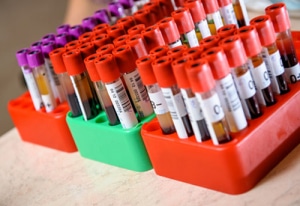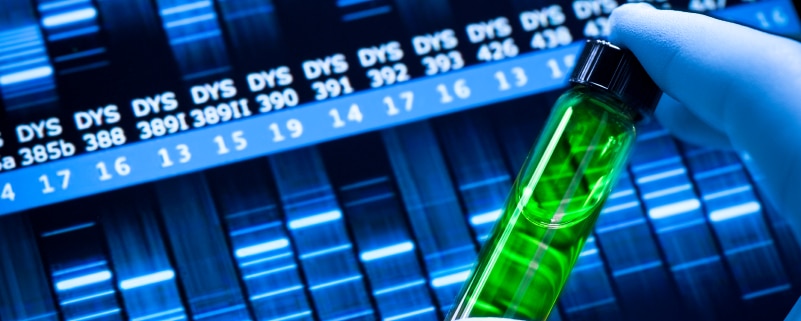The World Market for Biomarkers
We have just published our latest report, The World Market for Biomarkers. Biomarkers are biological or biochemical molecules, genetic changes, or other characteristics that can be measured; they indicate or predict a condition, risk, or likely biological response. Biomarkers can be used for a range of diagnostic applications including predicting disease risk, diagnosis, predicting prognosis, identifying appropriate therapy for an individual, monitoring disease or for return of a disease, and other applications. These tests are extremely important, since lab test results inform 60% – 70% of all critical clinical decisions, such as whether to admit, discharge and/or initiate therapy for a patient. Biomarkers are also extremely important in the development of new drugs, as they can be used to generate data that may eventually be part of the regulatory submission package.
The biomarker market is extremely large, reflecting the large market for diagnostic tests based on these biomarkers, and also the ongoing efforts to discovery, validate, and commercialize new biomarkers. This market is fueled by factors that are supporting growth of both the research and the diagnostics markets, including:
- Aging of the population
- Rising rates of obesity
- Growing number of cancer therapies
- Longer lifespans of cancer patients
- Advances in technology, improving our ability to analyze the increasing number of biomarkers
- Advances in bioinformatics
In addition, market growth is being fueled by the identification, validation, and introduction of new biomarkers, and products based on these new biomarkers. These include safety and efficacy biomarkers being used in drug discovery and development, and other applications in addition to diagnostics.
The large and growing biomarker market has attracted a lot of attention, and new players are entering the market. For biomarkers that have already been commercialized and for which many diagnostic companies offer tests, this is a very competitive field. However, even for companies that have developed their own, proprietary biomarkers, this can be a very competitive market as different companies or laboratories work to convince clinicians to use their proprietary biomarker or panel for a specific disease application, rather than use a biomarker or panel offered by a competing company.
Many different technologies have been developed and are used in biomarker discovery, and also for detection and analysis of known biomarkers. These include traditional technologies, some of which have been used for decades. In addition, many new technologies developed for other applications are now being applied in this field. These include mass spectrometry and next generation DNA sequencing. Many tests performed using newer technologies are currently being done primarily as laboratory developed tests (LDTs) or by organizations performing clinical tests for pharmaceutical companies developing new drugs; however, some companies plan to eventually develop IVD test kits based on their laboratory assays. Selected examples of companies using these various technologies are discussed in this report, including key players in the market:
- Companies Using Immunoassays for Detection and Analysis of Biomarkers
- Companies with Immunohistochemistry Tests for Detection of Biomarkers
- Companies Using In Situ Hybridization for Detection and Analysis of Biomarkers
- Companies Using PCR or Other Nucleic Acid Amplification-Based Technologies for Biomarker Assays
- Companies Analyzing Gene Signatures
- Companies Using Microarrays to Detect and Analyze Biomarkers
- Diagnostics Companies and Clinical Laboratories with Sequencing-Based Biomarkers
- Companies Using Mass Spectrometry
Companies, clinical laboratories, researchers, and others do not generally purchase “biomarkers.” One exception is in settings in which companies or clinical laboratories acquired rights to use specific biomarkers for certain applications. The application may be development of reagents or assays that can be sold to researchers who are studying the biomarker, or who are using the biomarker in their research. These research applications could include using the biomarker as a safety marker, or as a surrogate marker for clinical efficacy, or a different research application. Alternatively, applications of new biomarkers may be to develop diagnostic assays that will be used in clinical setting for diagnosis, predicting prognosis, monitoring, determining the optimal therapy, or other clinical application. In addition, some biomarkers may prove valuable as potential targets for novel new therapies.

- Cardiac Markers [cTn, HscTn, Acute CK-MB/BNP, Others]
- Tumor Markers [PSA, CEA, CA 125, AFP, PSA Rapid, Others]
- Coagulation Markers [PT/INR, D-dimer]
- Infectious Disease Markers [including Sepsis]
- Immunological Disease [Autoimmune/Allergy]
- Neurological Markers
- C-Reactive Protein and Other Markers
The World Market for Biomarkers estimates the world markets for biomarkers and biomarker tests from 2014 to 2024, with 2019 as the base year, providing global biomarker market forecasts for the total biomarker market, the market by application (clinical diagnostic biomarker market, research biomarker market), and the market by geographical distribution:
- Total Global Biomarker Market by Application, 2014 – 2024, in $Millions (Clinical Diagnostic, Research, Total)
- Biomarker Market Segments by Application, 2014, 2019, 2024, by Share (%) (Clinical Diagnostic, Research)
- Total Global Biomarker Market by Region 2014 – 2024, in $Millions (North America, European Union, Japan, China, India, ROW, Total)
- Global Market Segments by Region, 2014, 2019, 2024, by Share (%) (North America, European Union, Japan, China, India, ROW)
The World Market for Biomarkers includes profiles of companies active in the discovery and/or commercialization of biomarkers. This includes companies commercializing in vitro diagnostic tests for detection and analysis of biomarkers, selected diagnostic companies commercializing diagnostic tests in their own CLIA certified laboratories for detection and analysis of biomarkers, and selected other players. The report’s focus is on companies with commercialized products and/or very advanced development programs. The diagnostics market is a highly competitive market, and there are many additional diagnostic companies that offer tests based on biomarkers discussed in this report. Companies profiled in the report range from large, multinational companies to smaller companies in or entering this market, including the following:
- 20/20 Genesystems
- Abacus Diagnostica
- Abbott Laboratories
- Act Genomics
- Adaptive Biotechnologies
- Admera Health
- Agena Bioscience
- Agendia
- Agilent Technologies
- Alpco
- Ambry Genetics
- Athena Diagnostics /Quest
- Banyan Biomarkers
- Beckman Coulter
- Becton, Dickinson
- Biofire Diagnostics/Biomerieux
- Biohit
- Biomérieux
- Bio-Rad Laboratories
- Cancer Genetics
- Caris Life Sciences
- Cepheid
- Curetis
- Exact Sciences
- Foundation Medicine
- Fujirebio
- Genomic Health
- Hologic
- Illumina
- Myriad Genetics
- Neogenomics
- Ortho-Clinical Diagnostics
- Qiagen N.V.
- Roche
- Siemens Healthineers
- Sysmex Corp.
- Thermo Fisher Scientific
- Ventana Medical Systems/Roche
- Zeus Scientific
The large and growing biomarker market has attracted a lot of attention, and new players are entering the market. For biomarkers that have already been commercialized and for which many diagnostic companies offer tests, this is a very competitive field. However, even for companies that have developed their own, proprietary biomarkers, this can be a very competitive market as different companies or laboratories work to convince clinicians to use their proprietary biomarker or panel for a specific disease application, rather than use a biomarker or panel offered by a competing company.



